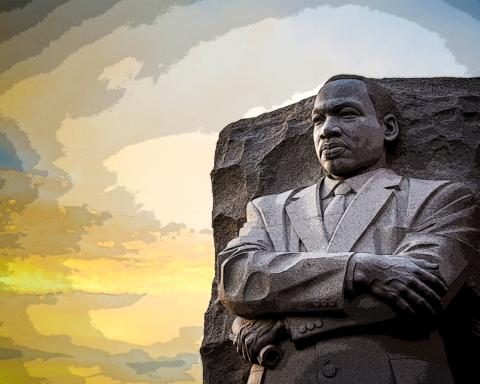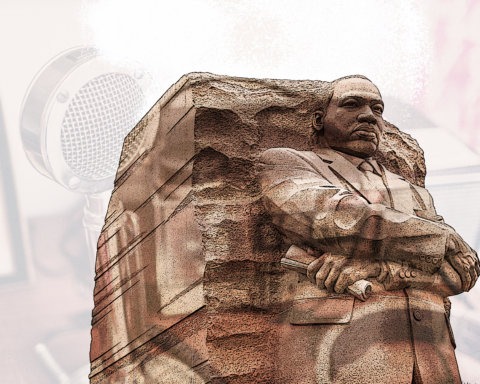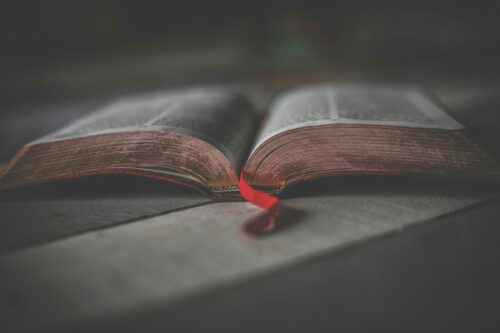As we celebrate Rev. Dr. Martin Luther King, Jr. on this day, it is imperative to remember not only his triumphs for humankind, but also his trials and tribulations that taunted him along the journey. As a scholar of the Rev. Dr. Martin Luther King Jr.’s Leadership Institute and a former Harrisburg School Board Member and City Councilmember, it is wrong for us to rejoice in a leader’s success without celebrating the loss and setbacks they endured to become resilient. We cannot continue to rejoice in the victory while neglecting the emotional and physical sacrifice that not only King had to bare but the faithful few who believed in his dream.
It is no secret that Rev. Dr. Martin Luther King, Jr. was viewed unfavorably in many eyes of Americans (including people of color) before he was assassinated. So, I am sorry if you wanted to read an account of King that demonstrates how vast we have come as a society because of the courageous acts that brought us through slavery, sharecropping, literacy test/poll taxes, desegregation and the “Poor People’s Campaign,” but I regret this article was not written for you. This article is for my Christian activist, advocates, local political leaders, teachers, dreamers and community organizers that understand we cannot rejoice until we dismantle the structural systems that have put this country in bondage from the beginning of its existence and to give them bread for the journey along the way.
Micah 6:8 tells us, “And what does God require of you? To act justly and to love mercy and to walk humbly with your God.” I whole heartedly believe this is what Rev. Dr. Martin Luther King, Jr. set out to do while he was here on earth. Nowhere in the bible does it say that the journey will be an easy passage because you are set out on the righteous path. King understood to be an operative pastor you need to have the Bible in one hand and the newspaper in the other tracking current events and turning to the word for answers. He recognized that the church was called not only to have its doors open on Sunday, but other days of the week to combat oppression and to serve the local community.
King became a local political leader at the age of 26. Never in his wildest dreams did he think he would be a civic icon for one of the most prominent movements in this country’s history. He was elected to lead the boycott not because his older clergy colleagues believed he was best suited, but there were other pressing matters which the committee was deeply involved in. When King lead the bus boycott movement, he had set out to demand courtesy for Black riders, hire Black drivers and operate on a first-come/first seated policy (still allowing Blacks to enter the back of the bus). Because the government chose not to comply with the demands, it caught the attention of more churches in the Montgomery area. The preachers and political leaders began to share the pulpit and form covenants with one another. They worked together to mobilize their constituents to no longer use any form of public transportation. With over 75% of the bus riders being Black in Montgomery, this mass organized movement caught the eye of 100 reporters which helped springboard King’s political career.
A 1966 Gallup poll stated that two-thirds of Americans had an unfavorable opinion of King due to him speaking up against living conditions in the North and the Vietnam War. One might ask why was King so unfavorable, especially in the Black community, while making so many strides for social justice? I believe the answer is quite simple. Rev. Dr. Martin Luther King, Jr. did not set out to be popular or to obtain fame. He understood that God had a plan for him to be prosperous and to give hope and moved him into a future of civil rights movements (Jeremiah 29:11).
Some might still be questioning, how can a country honor King today when at one point in time it was not sold on the dream? In order to answer that question, you must read the “I Have a Dream” speech entirely and dissect what he was really trying to achieve. King set out to dismantle white supremacy through economic prosperity; eliminate implicit bias; increase equity in housing, education and voting; just to name a few. These social well-beings still make a vast majority of Americans, white and people of color, cringe even to this day because it confronts their own complicit actions in systems of oppression and privilege. When you threaten a person’s comfort through systems of privilege, you then become their enemy. This is not only evident for Rev. Dr. Martin Luther King Jr. but for many American activist. The Black Panther Party was deemed a threat for feeding Black children; Collin Kaepernick is deemed unpatriotic for taking a stance against police brutality; and the Black Lives Matter Movement is deemed militant because they take a stance against violence and systemic racism towards Black people.
Being the youngest elected School Board Director and City Council member and now working for our denomination, I can attest to some of the fatigue, burnout, despair and prosecutions you are facing for being called to this line of work. When I first decided to run for Harrisburg School Board at the age of 20, I did not imagine in my wildest dreams that I would win and serve on the school board/city council and later accept a call to serve as the Associate for Recruitment and Relationships for the Young Adult Volunteer Program giving me a larger platform to combat systemic racism. We understand that there are many within our midst that do not want to see change prevail, but we need to remember that we are not alone in this race of social transformation. We have allies within our church and local community who are persistent to see the change we are aiming for. Remember to seek joy even in the smallest accounts along the journey and remember why you were called!
So, my dear beloved activist, advocates, local political leaders, teachers, dreamers and community organizers, I hope my words offer you a source of encouragement that you are not alone in this journey of righteousness. Know that there is so much work that needs to be done to advance humankind forward. And this is not a day off, but a day of reflection, action planning and implementation.
I will not rest until the new form of slavery which is our governments’ penitentiary system is reformed.
I will not rest until our immigrant siblings in this country are no longer sharecroppers but are given a fair day’s wage.
I will not rest until our felons who are free and served their time can walk proudly into their polling place and cast their ballot.
I will not rest until our classrooms are no longer segregated by zip codes and government funding for school resources.
I will not rest until we no longer have to continue the march on Washington for the “Poor People’s Campaign”.
I will not rest because “injustice anywhere is a threat to justice everywhere” (Martin Luther King) and I hope you will not rest until Rev. Dr. Martin Luther King’s dream is fulfilled.

Destini Hodges was born and raised in Harrisburg, PA and is a member of Capital Presbyterian Church of Carlisle Presbytery. Destini graduated from Penn State Harrisburg with her B.A. in Political Science and is currently obtaining her master’s degree in Community and Economic Development online through Penn State. Destini was elected to Harrisburg School Board in 2011 at the age of 21 and to Harrisburg City Council in 2016 at the age of 26. Before joining the YAV Team, Destini has served the PC(USA) by being a member of the Advocacy Committee for Women’s Concerns (ACWC) and the Diversity Coordinator for Presbyterian Women of Carlisle. In her current role as Associate for Recruitment and Relationships, Destini is charged with extending the invitation to have a transformational experience to young adults, connecting with alum and cultivating a partnership with campus ministries, congregations, and community organizations.






Unbound Social